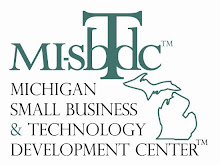As reproted in the Washington Business Journal:
The economic stimulus package includes a $35,000 life preserver for small businesses drowning in red ink.
Under the law, the Small Business Administration temporarily will guarantee 100 percent of loans of up to $35,000 issued by banks to small businesses that are struggling to make payments on existing debt. The SBA will subsidize the interest on the loan, and small businesses will have a year before they have to start repaying it.
“Our committee has heard from many firms who could be viable and grow again if they could only buy a little time,” said Rep. Nydia Velazquez, D-N.Y., who chairs the House Small Business Committee. “This new program was designed with these firms in mind.”
The loan amount may be small, but the program could help many small businesses, said Edward Tuvin, a former SBA lender who now is managing director of Creative Capital Associates, a Silver Spring factoring business.
By using banks to make these loans instead of making them itself, the SBA also “keeps bankers employed,” Tuvin said.
The stabilization loan program is one of several provisions in the stimulus package aimed at making the SBA a more effective source of assistance to small businesses during the recession. The final bill, however, does not include a House provision that would have enabled the SBA itself to make loans to small businesses if its network of private-sector lenders turned them down.
The law gives the SBA $375 million so it can temporarily eliminate or reduce fees on its regular 7(a) and 504 business loans. Lending through both programs is down dramatically this year. Slashing the fees should make the loans more attractive to borrowers and lenders.
The SBA also is authorized to guarantee up to 90 percent of 7(a) loans, except for loans made through the SBA Express program. The current guarantee limits are 75 percent for loans above $150,000 and 85 percent for smaller loans.
The increased government guarantee will “provide a higher level of protection for risk-weary lenders,” said Sen. Mary Landrieu, D-La., who chairs the Senate Small Business and Entrepreneurship Committee.
The legislation also allows small businesses to use the 504 program to refinance existing loans under certain conditions.
Nonprofit organizations will receive $6 million in additional funds to make microloans of up to $35,000 to businesses with 10 or fewer employees. An additional $24 million will be used to provide technical assistance to those companies.
The stimulus bill also includes steps to thaw the frozen secondary market for SBA loans. Many lenders must be able to sell their existing SBA loans to have enough capital to make new loans. The legislation allows the SBA to make loans to broker-dealers who purchase 7(a) loans and then pool them for sale to investors.
The new law also aims to unfreeze the secondary market for first-lien loans in the 504 program, which is used for real estate and other fixed assets. The SBA will guarantee pools of these loans, making them less risky than other mortgage-backed securities.
In addition, the bill temporarily increases the SBA’s guarantee on surety bonds from $2 million to $5 million, which “will allow more small businesses to compete for more federal projects, creating jobs now, investing in America’s future and helping to drive us out of this recession,” said Sen. Benjamin Cardin, D-Md.
Subscribe to:
Post Comments (Atom)






No comments:
Post a Comment